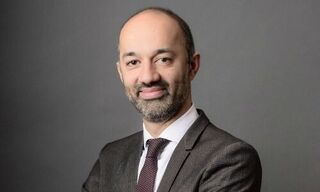The U.S. has brought another Swiss banker to book for helping wealthy clients evade their taxes. One of her methods was as crude as it was simple and efficient.
Susanne Rueegg Meier is one of five Credit Suisse bankers to be charged six years ago with aiding tax evasion. The others were her former boss, Markus Walder as well as ex-colleagues Marco Parenti Adami, Michele Bergantino and Roger Schaerer.
Rueegg Meier, a team leader at Credit Suisse until 2011, pled guilty to defrauding the U.S. by helping wealthy Americans keep their money hidden from the tax man, theDepartment of Justice (DOJ).
The Swiss banker, who ran Credit Suisse's North American desk for nine years until 2011, admitted that the U.S. had lost out on as much as $9.5 million in taxes because of her actions.
«Helping» Clients
Rueegg Meier, who has probably been confined to Switzerland since her 2011 indictment for fear of being extradited, is likely already in the U.S., which prefers for defendants to make guilty pleas in open court. She faces up to five years in jail as well as demands for restitution and penalties when she is sentenced on September 8.
She oversaw as many as 1,500 client relationships and was personally responsible for as many as 150 of them, according to the plea – 95 percent of them from wealthy Americans.
In 2008, as Credit Suisse scrambled to shut down illicit accounts following a heavy penalty for UBS, Rueegg Meier continued «helping» her clients.
She sent some of them on to banks like Wegelin & Co or Bank Frey, which were more receptive to taking U.S. clients. Wegelin's flouting of the U.S. ended disastrously: the 272-year-old bank was forced to close down five years later under the heft of a U.S. indictment; Bank Frey has also since shuttered due to the U.S. probe.
Crude Methods
For one client, Rueegg Meier elected a simple, efficient method after she had to inform a client that the bank was shutting him (or her – the plea doesn't specify) out: $1 million of client cash was stuffed into a paper bag and the client sent to wander along Zurich's fabled Bahnhofstrasse until he or she found a bank which would be willing.
It took Credit Suisse another six years to finally bring the U.S. criminal investigation to a close, and the Swiss bank was also forced into a guilty plea as well as a $2.5 billion fine and a legal monitor, among other measures.
That probe, which has been reopened, has fed into a Dutch-led, six-nation tax probe that ensnared Credit Suisse earlier this year.


























